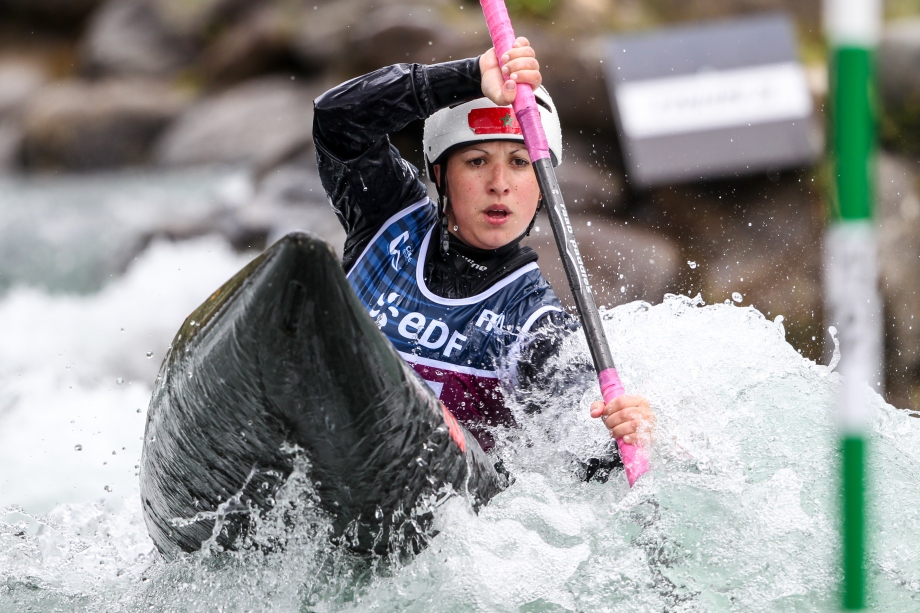Canoe slalom history is set to be made at this year’s Tokyo Olympics when, for the first time, an African country will have both a male and a female athlete competing.
Morocco, already the most successful African nation in terms of the number of canoe slalom athletes who have competed at an Olympic Games, is set to have an athlete in the men’s K1 and the women’s K1 in Tokyo.
The quotas for this year’s Games were decided at the African Olympic canoe slalom qualifiers in La Seu, Spain, on the weekend and, subject to final country acceptance, will see Senegal join Morocco in Tokyo.
Morocco has previously had athletes at the Sydney, London and Rio Olympics. Tokyo will be the first Games since Nizar Samlal competed in the K1 in Sydney where they will have a male competitor.
21-year-old Mathis Soudi is in the box seat to make his Olympic debut after finishing an impressive second behind Russia’s Pavel Eigel in Sunday’s K1 final.
“I’m really happy to have earned this spot for Tokyo 2021,” Soudi said after the race.
“I’ve really waited a long time for this race, so to have achieved this is great.”
32-year-old Celia Jodar finished second in the African K1 qualifiers for the 2016 Rio Olympics behind teammate Hind Jamili, but on Sunday she was the fastest African in the field, finishing 19th, a good enough result to secure Morocco a women’s quota for a third consecutive Games.
Jean Pierre Bourhis made Games history in Rio in 2016 when he became the first athlete from Senegal to compete in an Olympic canoe slalom event, finishing 18th in the men’s C1.
On Sunday he locked away Senegal’s chance to attend a second Olympics, finishing seventh behind Spain’s Luis Fernandez.
“I feel good now, but it really was a hard week,” Bourhis said.
“It was very stressful, I just wanted to be able to paddle at my level. I think during the races I improved from the heats to the semi-finals, but I made a small mistake in the finals.
“But I made it, and I’m happy with my work.”
I feel good now, but it really was a hard week
There were mixed emotions for Bourhis during the final, with his younger brother Yves dislocating a shoulder shortly after beginning his run. Jean Pierre was waiting at the finish line, and became worried when his 23-year-old brother did not appear.
“I was waiting a long time, and I saw that no-one was coming,” he said.
“I felt strange, that something had happened. Someone told me there was trouble, so I jumped out of my boat and ran to the start to see what was happening.”
Africa’s best ever performance at an Olympic Games came in 2008 in Beijing, when Benjamin Boukpeti won bronze for Togo in the men’s K1 final. It was Togo’s first ever Olympic medal. Boukpeti also competed at the 2004 and 2012 Olympic Games.
La Seu in Spain was the venue for the canoe slalom competition at the 1992 Barcelona Olympic Games, where South Africa’s Gary Wade made history by becoming the first ever African athlete to compete in an Olympic canoe slalom event.
There were no African canoe slalom athletes at the 1996, but the continent has been represented at every Games since Morocco’s Nizar Samlal competed in the K1 at the Sydney Olympics.





